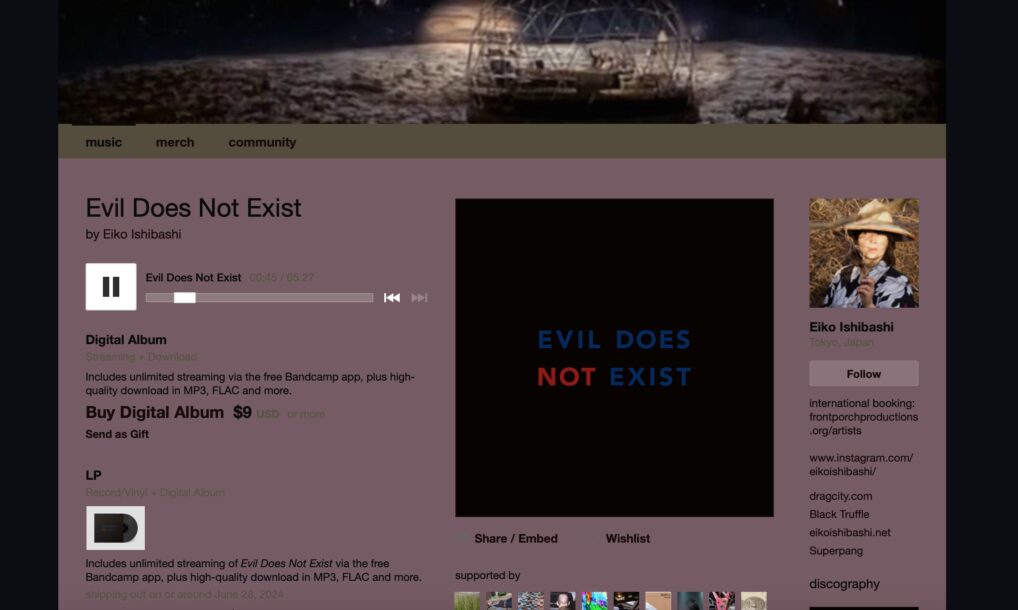
Review by AVA LIVERSIDGE
Eiko Ishibashi, the prolific session musician and ambient powerhouse dominating the Japanese avant-garde, has released her fifth solo work, LP Evil Does Not Exist, a compelling collection that blends a range of stylish sound.
Following her collaboration with filmmaker Ryusuke Hamaguchi on Oscar-winning “Drive My Car,” the duo set out to work on Hamaguchi’s latest celebrated film “Evil Does Not Exist” (2023). Ishibashi’s 7-track accompanying score displays the full breadth of her instrumental virtuosity, melding both her classical competencies with an unrestrained willingness to weave intricate tapestries of ambient noise.
As a musician, Ishibashi is the embodiment of first learning the rules in order to break them. Her resumé ranges from J-pop to modern classical, having performed and toured with Jim O’Rourke, Charlemagne Palestine, Keiji Haino, and more. In the studio, she has accompanied countless acts on piano and vibes, and has served as percussionist in a smattering of bands. In short, she has done it all; she becomes whatever musician she is called upon to be.

Ishibashi composes architectonically: Every soaring synth line and dull rhythmic thrum is intentional, bearing the composition’s full weight. Thus, these sonic spaces are fragile constructions, limitless to listeners in their possibility. Ishibashi’s sounds do have a tendency to shape shift, but that’s absolutely essential in their manifestation. That is, however unrestrained and vast Ishibashi’s ambient music may sound to a given ear, the third or fourth listen reveals that these soundscapes could not exist in any other way. They could not survive a single pitch shift beyond the wizened hands of Ishibashi herself.
Title track “Evil Does Not Exist” opens with soaring string arrangements, more reminiscent of the romantic classical era than of the avant-garde. The track, bolstered by a thin buzz of synthetic undertones, quickly embraces the cinematic. And though the track is meant as an accompaniment to Hamaguchi’s master cinematography, “Evil Does Not Exist” creates worlds of its own, transcending the auditory confines of the purely musical.
Second single “Smoke” opens with the metallic-inflections of cymbal rolls, and quickly unfurls into something of a warning. Intricate percussion paired with a wavering synth and then horn presence oscillates between ominous and curiously triumphant.
Hamaguchi’s “Evil Does Not Exist” has already been lauded as a triumph, but Ishibashi’s score truly stands alone. While certainly not casual listening, the judicious listener will be rewarded as they bathe in her many worlds of endless nuance and psychic deliberation. Those who appreciate masterful sound would be wise to slip away into the new dimensions of Ishibashi’s latest masterwork.
Listen to Evil Does Not Exist here:

